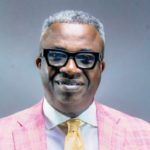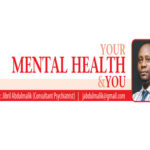THE Lancet Nigeria Commission report has proposed a new social contract centred on health to address Nigeria’s need to define the relationship between the citizens and the state.
The University College London (UCL)-led report tagged ‘Investing in health and future of the nation’ also recommended that prevention is at the heart of health policy, of Nigeria’s young population.
Speaking during the global launch of the report in Abuja, Vice President, Professor Yemi Osinbajo, said the report also called for a ‘One nation, one health’ policy to attain Universal Health Coverage (UHC), and to particularly benefit segments of the population bearing the highest disease burden.
He said it also proposes that government should lead the development of standards for the digitisation of health records and better data collection, registration and quality assurance systems.
According to him, “This objective of a new social compact is important if we are to meet constitutional guarantees encapsulated in the right to life to our citizenry and the primary aspiration of the fundamental objectives of the Nigerian state – the wellbeing of the Nigerian citizen.”
Professor Osinbajo stated that the country welcomes innovation and fresh thinking to further improve its health outcomes and the timing of the publication is apt as President Buhari just inaugurated the Health Reform Committee.
Secretary to the Government of the Federation, Boss Mustapha said in order to become responsive to the needs of the people, the country must increase its investment in the healthcare system because of its growing population and it is just recovering from the COVID-19 pandemic.
The Minister of State for Health, Dr Adeleke Mamora, who was represented by the Director Public Health of the ministry, Dr Morenike Alex-Okoh, said the country must engage in the findings of the commission to ensure that all hands are on deck towards achieving Universal Health Coverage (UHC).
Presenting the report, Dean, University College London (UCL), Professor Ibrahim Abubakar, said evidence had shown that healthcare was set by penalizing mainly the poorest in Nigeria.
IN CASE YOU MISSED THESE FROM NIGERIAN TRIBUNE
- ‘Officials initially offered to help but when the number of able-bodied citizens at the centre increased, they left us unattended to’
- Why Ogun Tops List Of ‘Yahoo Boys’ In Nigeria ― Governor Abiodun
- Police, Amotekun after criminals on Lagos-Ibadan expressway
- Suspected cannibal pays N500,000 for boy’s human organs, says ‘that’s my favourite meal, especially the throat’
- Court awards Nnamdi Kanu N1 billion over invasion of his home by military, asks FG to apologise
He said the findings of the report include the need to rationalise service delivery at federal, state and local government levels; boost innovation to lead the African continent, stem brain drain and redirect human resources to the primary healthcare level via joint planning and incentives.
Professor Abubakar added: “Health is a unique political lever, which to date has been under-utilised as a mechanism to rally populations. Good health can be at the core of the rebirth of a patriotic national identity and sense of belonging.
“A commitment to a ‘One Nation, One Health’ policy would prioritise the attainment of Universal Health Coverage for all, particularly for the most vulnerable Nigerians, who bear an unacceptably high disease burden,” he explained.
WATCH TOP VIDEOS FROM NIGERIAN TRIBUNE TV
- Relationship Hangout: Public vs Private Proposals – Which Truly Wins in Love?
- “No” Is a Complete Sentence: Why You Should Stop Feeling Guilty
- Relationship Hangout: Friendship Talk 2025 – How to Be a Good Friend & Big Questions on Friendship
- Police Overpower Armed Robbers in Ibadan After Fierce Struggle






